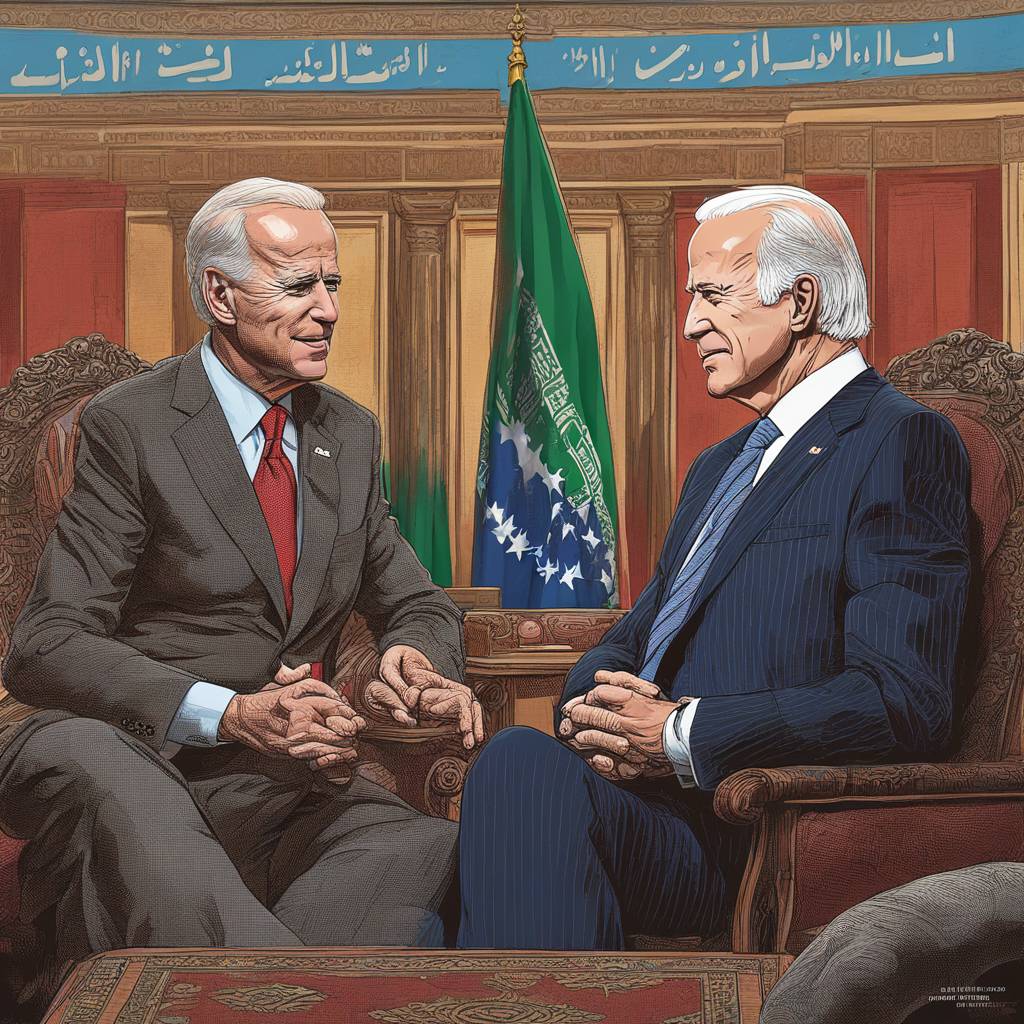President Joe Biden is set to host Iraqi Prime Minister Mohammed Shia al-Sudani on April 15 as the two countries engage in formal talks regarding the winding down of a U.S.-led military coalition aimed at fighting the Islamic State group in Iraq. The White House stated that the meeting will cover various topics, including the fight against the Islamic State and ongoing Iraqi financial reforms to promote economic development and progress towards financial independence and modernization. The relationship between the two countries is complex due to Iran’s significant influence in Iraq, where Iran-backed groups helped bring al-Sudani to power in October 2022.
In recent months, the U.S. has been urging Iraq to take more action to prevent attacks on U.S. bases in Iraq and Syria, which have added to tensions in the Middle East following Hamas’ attack on Israel on October 7. The U.S. has also been applying financial pressure on Baghdad over its relationship with Tehran, restricting Iraq’s access to its own dollars in an attempt to combat alleged money laundering benefiting Iran and Syria. The U.S. and Iraq recently held an initial session in January to discuss the possibility of ending the coalition established to assist the Iraqi government in fighting the Islamic State, with approximately 2,000 U.S. troops still present in Iraq under an agreement with Baghdad.
The upcoming visit will take place a year after the abduction in Baghdad of Elizabeth Tsurkov, a Russian-American academic at Princeton University believed to be held by the Iran-backed militia Kataib Hezbollah, which Washington deems a terrorist group and one of the most powerful armed groups in Iraq. This group was established after the 2003 U.S.-led invasion of Iraq with support from Iran’s Islamic Revolutionary Guard Corps. Tsurkov’s sister, Emma, has called for the U.S. Department of State to designate Iraq as a state sponsor of terrorism and urged the White House to make the meeting with al-Sudani conditional on his efforts to secure the release of her sister, an action she claims he has the power to do.
The ongoing discussions between the U.S. and Iraq regarding the military coalition appear to be part of broader efforts to address various issues impacting the region, including security concerns, economic development, and financial independence. The delicate relationship between the two countries is further complicated by Iran’s influence in Iraq and the presence of Iran-backed militias in the country. The meeting between Biden and al-Sudani will provide an opportunity to address these challenges and work towards a more stable and secure future for Iraq.
The U.S. has expressed concerns about attacks on its bases in Iraq and Syria and has been seeking greater cooperation from Iraq on security matters. The financial pressure applied by the U.S. on Iraq over its relationship with Iran and efforts to combat money laundering illustrate the complex dynamics at play in the region. The role of Iran-backed militias in Iraq, particularly Kataib Hezbollah, adds another layer of complexity to the situation and underscores the need for continued dialogue and cooperation between the U.S. and Iraq.
The kidnapping of Elizabeth Tsurkov, allegedly by an Iran-backed militia in Iraq, highlights the ongoing security challenges facing the country and the broader region. Calls for her release from her sister and demands for action from the U.S. government underscore the human impact of these geopolitical issues. The upcoming meeting between Biden and al-Sudani offers an opportunity to address these concerns and work towards a resolution that promotes stability and security in Iraq.



